Due to COVID-19 representatives of HEKS, the Aid Organization of the Swiss Protestant Churches, local program coordinators, current and potential actors implementing the programs in Hungary could only meet online. This didn’t prevent participants of the workshop from evaluating the Roma integration projects of the past four years and discussing new plans for the upcoming years in continued cooperation between HEKS and RCH.
Since 2013 HEKS has supported social integration projects in congregations and schools of RCH in close cooperation with the National Roma Ministry of the Church. In the past seven years school inclusion and congregational afterschool programs have been implemented in more than twenty locations. In 2020 the second 4-year project period came to an end. The Zoom conference on the 23rd of September therefore included both in depth evaluation of the experiences, challenges and outcomes of the past cooperation and strategic planning for coming years of the Church Cooperation between HEKS and RCH.
Rev. Eszter Dani, head of the mission department of RCH in her opening reflection expressed gratitude to the participants of congregational and school projects highlighting the importance of their ministry in tearing down dividing walls in society and promoting inclusion of Roma people in church and society as well. “I firmly believe that through these programs you yourselves encounter God. We shall continue exploring His will in the future as well,” added the pastor.
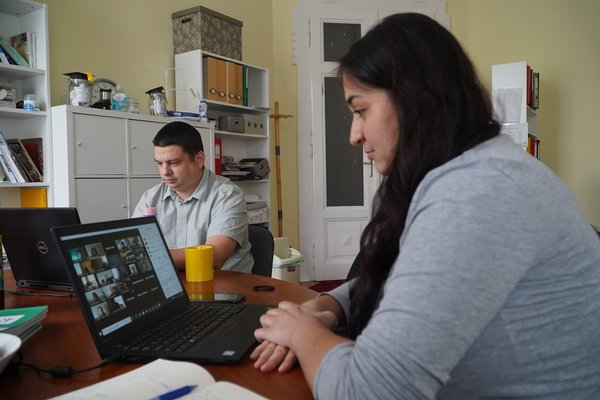
On behalf of HEKS Angela Elminger, program coordinator for Central Europe welcomed the nearly 30 participants and introduced her new colleague Bettina Malhotra, who in the upcoming four years will be in close cooperation with the Hungarian project leaders.
The country program implemented between 2017 and 2020 was reviewed by the SIMPACT Nonprofit Ltd. in the past months and Gábor Nagy, executive manager of the company, presented the results of the evaluation, the same way he did during the summer workshop where HEKS and RCH representatives decided to continue the Roma integration project.
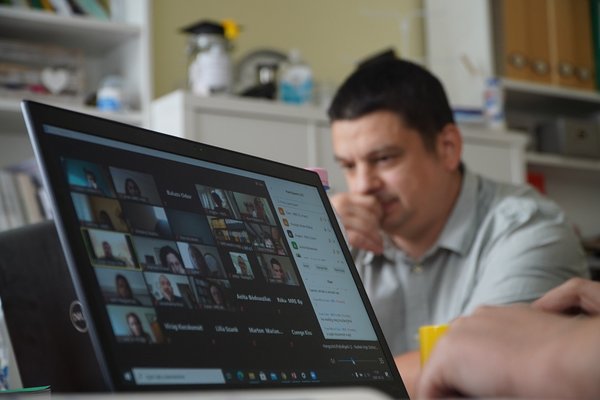
The presentation pointed out that the local HEKS projects contribute both directly and indirectly to the implementation of RCH’s Roma strategy. The project is in line with the relevant regional and national policies and strategies, as well as with the state’s intention to involve churches as instruments of their implementation. Still, the HEKS project has a difference of perspective, aiming for a broader inclusion. The project is relevant regarding social inclusion both in its afterschool and its community building activities, with the latter also supporting decreasing tensions directly, and this relevance is more recognized by the congregations than it was in 2016.
Those involved in the school project reported positive changes and the afterschool helped improving the children’s performance and competences, their behaviour, social skills and cooperation with each other. One of the quotes registered during the interviews with a student reflects the success of the after school program: “I’ve got a B in math, therefore my younger brother will come to the afterschool too”.
Following the discussion about lessons to learn of the evaluation, Swiss partners presented the organisation’s strategy for Church Cooperation in general, and reported about the progress in drafting the new country program to the next four years which also includes as second priority the strategic cooperation in the field of social integration of Refugee families.
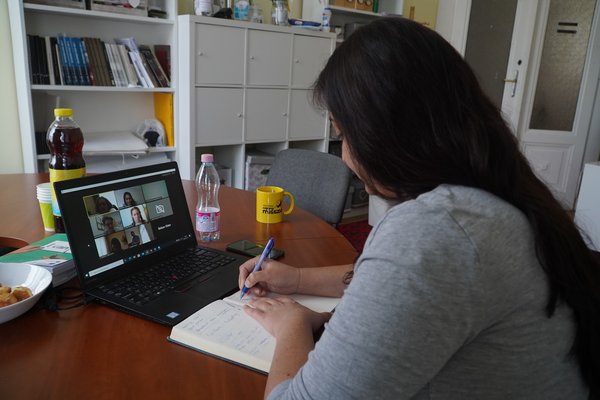
As outlined in the Strategy of the Church Cooperation program, one of the three sections of the its international programmes, HEKS is convinced that despite diminishing influence, the task of churches remains to work beyond the ranks of their members and to contribute to society. For this reason, the main objective of Church Cooperation is to ensure that Reformed churches are perceived as organisations that are relevant within their societies, are open, and play an active and responsible role. The Church Cooperation concept identifies three sub-goals that contribute to strengthening the relevance of partner churches within society. Inclusion of disadvantaged people, strengthening church life and maintaining relationships between partner churches and Reformed churches in Switzerland. In all this, human dignity and human rights are basic values and moral guidelines which shall be reflected also in the future cooperation in Roma integration in Hungary.
In the coming years HEKS, in cooperation and exchange with local project partners will pay high attention to the aspect of sustainability of the program, including financial stability, inclusion of additional local support and raised ownership and support from RCH, as well. The main goal remains the same; promoting inclusion of Roma people in church and society based on the churches’ commitment and responsibility and a better use of financial sources.
Strategic goals include equipping RCH and its congregations with appropriate resources for inclusion of the Roma, creating inclusive communities by the strengthened relationship between Roma and Non-Roma, promoting Roma children and youth in exploring their skills and talents, and transforming reformed schools into more welcoming and inclusive institutions.
Andrea Ignácz, HEKS-coordinator of RCH and Dániel Ablonczy, coordinator of HEKS the related school inclusion program presented the strategic objectives of the program. Strengthening structures and building capacity includes that congregations will receive mentoring and participate in sensitising workshops, which shall help them recognise and overcome prejudice and discrimination in their communities. A specified number of congregations will participate in the implementation of this project, partly from regions where Roma people represent two third of the population. It is also important to build and nourish partnerships within and without Hungary.
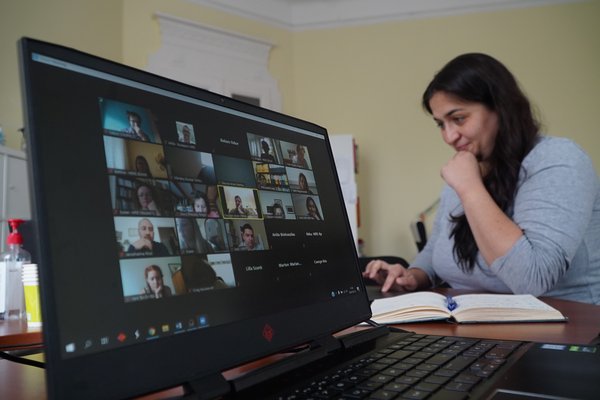
In regards of community building the value of diversity will be emphasized in the communities, along with Christian values which will be the base for peaceful co-existence. Roma cultural heritage and identity shall be appreciated and treasured among Roma and Non-Roma alike. Awareness raising and sensitization are crucial in building trust and mutual respect. Joint activities of Roma and Non-Roma will be essential, youth and adults shall volunteer together in social initiatives.
A professional team will be established for the support of disadvantaged children, with special attention to school performance and career orientation, in cooperation with teachers of local schools and families. Extending assistance to children under school age is also part of the initiative. Besides personality and group behaviour development, special attention will be paid to strengthening the understanding of Christian values for Roma children and youth.
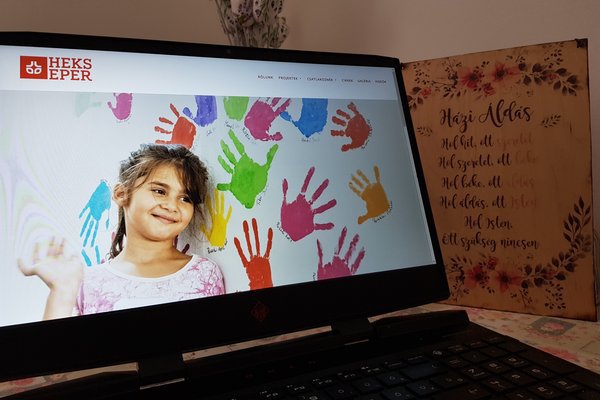
Another component of the joint project is the effort to sensitize reformed schools in terms of inclusion, inclusive education and active participation of Roma children in education. Reformed schools shall continue participating in a comprehensive reception program. This helps the institutions to offer better chances for disadvantaged Roma students to get into higher education. Finally, the objective of promoting the relationships and exchange between inclusive schools and congregations was also highlighted.
After the presentations the participants of the workshop had the chance to share their thoughts and comments in separate break out groups and reflect on the objectives. Specialized workshops will take place in the coming weeks to discuss, contextualize and fine-tune the project plan which will determine the Church Cooperation between 2021 and 2024. These workshops represent the last phase of planning and drafting the next Country Program which is essential for local project partners, congregations and schools alike, so that they can submit their own draft proposal still in November.